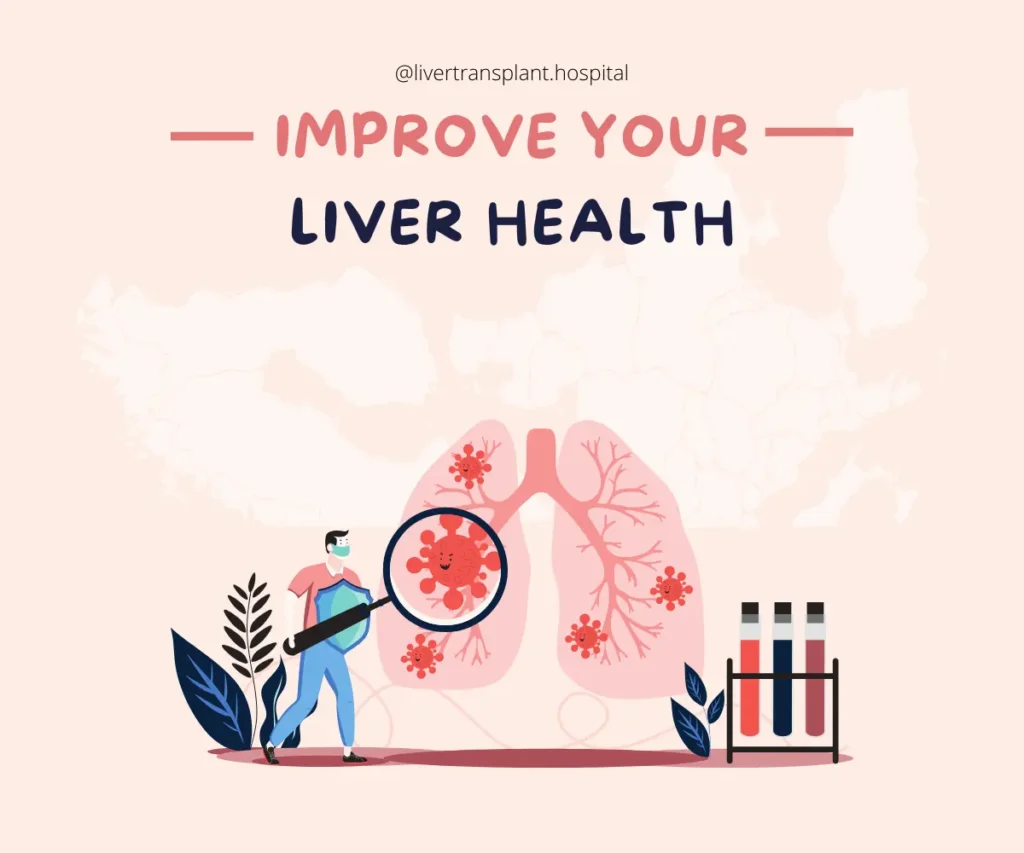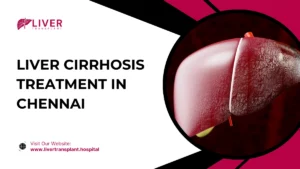A liver transplant can be a life-changing procedure for individuals with severe liver conditions. It offers a second chance at life but comes with adjustments and new responsibilities. After the surgery, patients begin a journey of recovery, focusing on their health and well-being.
A New Lease on Life
Life after a liver transplant offers a new lease on life, but the path to recovery is filled with challenges. The first few months post-surgery are crucial as your body adapts to the new liver. You’ll need to attend frequent follow-up appointments and undergo tests to monitor your health and detect any signs of organ rejection. It’s natural to feel anxious or overwhelmed during this period, but with the right mindset and support, these challenges can be overcome.
Some of the common challenges you may face include:
- Medication management: Sticking to your medication routine to prevent rejection.
- Physical recovery: Regaining strength and stamina after the surgery.
- Emotional and mental health: Coping with feelings of anxiety, fear, or depression.
- Diet and nutrition: Adjusting to a balanced diet that supports liver function.
- Lifestyle adjustments: Making changes to avoid infections and other risks.
With patience and determination, most people gradually regain their strength and resume a normal, healthy lifestyle. Having a strong support system of family, friends, and healthcare providers will make it easier to navigate these challenges and fully enjoy the new opportunities that come with life after liver transplant.
Nutrition for a Healthy Recovery
Nutrition for a Healthy Recovery is crucial in life after a liver transplant. Proper eating habits help your body heal, support your new liver, and boost your immune system. Good nutrition can make a significant difference in how well you recover and maintain your health post-transplant.
- Balanced Diet: Incorporate a variety of foods to ensure you get all essential vitamins and minerals.
- High Protein Intake: Protein helps repair tissues and build muscle. Include sources like lean meats, fish, eggs, and legumes.
- Fruits and Vegetables: These provide important antioxidants and fiber, which aid digestion and protect your liver.
- Whole Grains: Opt for whole grains such as brown rice, whole wheat bread, and oatmeal to maintain energy levels.
- Healthy Fats: Include sources of healthy fats like avocados, nuts, and olive oil to support cell growth and function.
- Hydration: Drink plenty of water to stay hydrated and help your kidneys and liver function properly.
Avoid certain foods during the transplant process to reduce the risk of infections and complications:
- Raw or Undercooked Foods: These can harbor harmful bacteria that your immune system might struggle to fight.
- High-Sugar and High-Fat Foods: These can strain your liver and lead to weight gain, impacting your recovery.
- Alcohol: Completely avoid alcohol as it can damage your new liver and interfere with medications.
Exercise and Physical Activity
After a liver transplant, regaining physical strength is crucial but must be approached with caution. Initially, your body is healing, and it’s important to ease back into physical activity gradually. Exercise helps improve circulation, rebuilds muscle, and supports mental well-being, but rushing into it can lead to complications. Always consult your doctor before starting any exercise program.
In the early stages after your liver transplant, focus on light physical activities that don’t strain your body. A gradual approach ensures you don’t overexert yourself, allowing your body time to adjust to the changes.
- Start with short, slow walks around your home or garden.
- Gentle stretching exercises can help improve flexibility.
- Light aerobic activities like walking or swimming, once approved by your doctor, can gradually increase your stamina.
- Avoid heavy lifting or high-impact exercises in the first few months.
As you continue to recover, you can slowly increase the duration and intensity of your exercises. Listening to your body is key—if you experience any pain or discomfort, stop and consult your healthcare provider.
Mental Health and Emotional Well-being
After a liver transplant, focusing on mental health and emotional well-being is just as important as physical recovery. The process of undergoing a major surgery can bring about a wide range of emotions, from relief and gratitude to anxiety and stress. Many patients experience emotional highs and lows as they adjust to their new life post-transplant. It’s essential to address these feelings and seek support when needed.
Key strategies to maintain emotional well-being include:
- Open communication: Share your thoughts and concerns with loved ones, friends, or a therapist.
- Join support groups: Being part of a transplant support group can help you connect with others who understand your experiences.
- Practice mindfulness and relaxation: Techniques like meditation, deep breathing, and yoga can reduce stress and promote mental calm.
- Seek professional help: If feelings of anxiety or depression persist, don’t hesitate to consult a mental health professional.
Emotional recovery is a gradual process, and it’s normal to feel overwhelmed at times. Prioritizing mental health can improve your overall quality of life after the transplant process. Remember, a healthy mind is just as important as a healthy body in ensuring a smooth recovery and long-term success.
Medication Management
After a liver transplant, managing your medications is one of the most critical aspects of ensuring the long-term success of the procedure. The body’s immune system naturally sees the new liver as foreign and may attempt to reject it. To prevent this, patients must take immunosuppressive medications for the rest of their lives. Proper medication management helps reduce the risk of rejection and keeps the new liver functioning well.
Adhering to your prescribed medication routine is vital to maintain the success of the transplant process. Missing doses or not following the schedule can lead to complications. Here are a few key points to consider:
- Take medications exactly as prescribed by your doctor, without missing any doses.
- Set reminders or use a pillbox to help organize your daily medications.
- Keep a written log of the medications you take, including dosages and times.
- Always communicate with your doctor if you experience side effects.
Medication is crucial, but it also comes with possible side effects, such as increased susceptibility to infections. Regular check-ups will help your healthcare provider adjust dosages and monitor for any potential issues.
Social and Family Relationships
After a liver transplant, reconnecting with family and social circles is a crucial part of recovery. The support of loved ones can significantly impact your emotional well-being and help you adjust to the new normal. A liver transplant can sometimes put a strain on relationships due to the emotional and physical toll of the transplant process. However, it can also strengthen bonds as families come together to support the patient’s recovery.
It’s important to communicate openly about your recovery journey. This includes discussing any limitations or new lifestyle adjustments that may affect your daily activities. Your family and friends should understand that recovery takes time, and their patience and assistance will be invaluable during this period.
- Open Communication: Talk honestly with your loved ones about your emotions, struggles, and progress.
- Involvement in Recovery: Allow family members to assist with daily tasks, attend medical appointments, and be part of the healing process.
- Social Activities: Plan regular but gentle activities like family dinners or walks to stay connected without overexerting yourself.
By fostering understanding and open communication, your relationships can become a source of strength and motivation as you adapt to life after a liver transplant.
Returning to Work and Daily Routines
Getting back to work and daily routines after a liver transplant is a significant step in the recovery process. It’s important to remember that your body needs time to fully heal, and rushing back to normal activities can delay recovery. While you may feel eager to resume your daily life, a gradual approach is essential for long-term health.
Before returning to work, it’s crucial to consult with your doctor about your readiness. Your healthcare team will assess your progress and recommend when it’s safe to return based on your physical condition and the nature of your job.
Here are some key considerations for returning to work and daily routines after a liver transplant:
- Start slowly: Consider part-time or flexible hours at first to ease back into your responsibilities.
- Communicate with your employer: Let them know about any special needs or limitations you may have during your recovery.
- Avoid heavy lifting: If your job involves physical activity, be sure to avoid strenuous tasks until you’re cleared by your doctor.
- Listen to your body: Take breaks when necessary and avoid overexerting yourself.
Gradually reintroducing yourself to work and daily activities will help ensure a successful and sustainable recovery after your liver transplant. Always prioritize your health and well-being during this process.
How Can I Take Care of Myself and My New Liver?
Caring for yourself and your new liver is vital for a successful recovery and improved liver transplant life expectancy. Follow these guidelines to support your health:
- Medications: You will need to take immunosuppressants daily to prevent organ rejection. It’s essential to take them exactly as prescribed.
- Healthy Diet: A balanced diet helps maintain liver function. Focus on lean proteins, whole grains, and plenty of fruits and vegetables while limiting salt, sugar, and unhealthy fats.
- Regular Check-ups: Post-transplant care includes frequent medical check-ups. Your doctor will monitor liver function, check for signs of rejection, and adjust medications as needed.
- Exercise: Gentle physical activity, such as walking or swimming, will help improve overall strength and boost your recovery. Avoid strenuous activities until cleared by your doctor.
- Avoid Alcohol and Smoking: Both can significantly damage your new liver and reduce liver transplant life expectancy.
By following these steps, you can ensure that your new liver remains healthy and functions properly for years to come.
What Are the Signs of Possible Organ Rejection?
Organ rejection can occur when your body’s immune system sees the new liver as foreign and attacks it. Recognizing the early signs of rejection can help prevent severe complications. Watch for these symptoms:
- Fever: A persistent fever above 100°F could indicate a problem.
- Jaundice: Yellowing of the skin or eyes may signal liver issues.
- Fatigue: Feeling extremely tired, even after resting, is a warning sign.
- Dark Urine or Pale Stools: These changes in color may point to liver dysfunction.
- Abdominal Pain: Pain near the liver area or swelling can be a symptom of rejection.
If you notice any of these signs, contact your transplant team immediately for evaluation and treatment.
Conclusion
Life after a liver transplant requires careful management and ongoing care to ensure the success of the procedure and a higher liver transplant life expectancy. By following medical advice, maintaining a healthy lifestyle, and recognizing the signs of potential complications like organ rejection, you can lead a fulfilling life. Regular check-ups, proper medication use, and a balanced diet are key to safeguarding your new liver and enjoying long-term health and well-being. Always consult your healthcare provider for personalized care plans.






